A workshop to illuminate light-induced biological dynamics
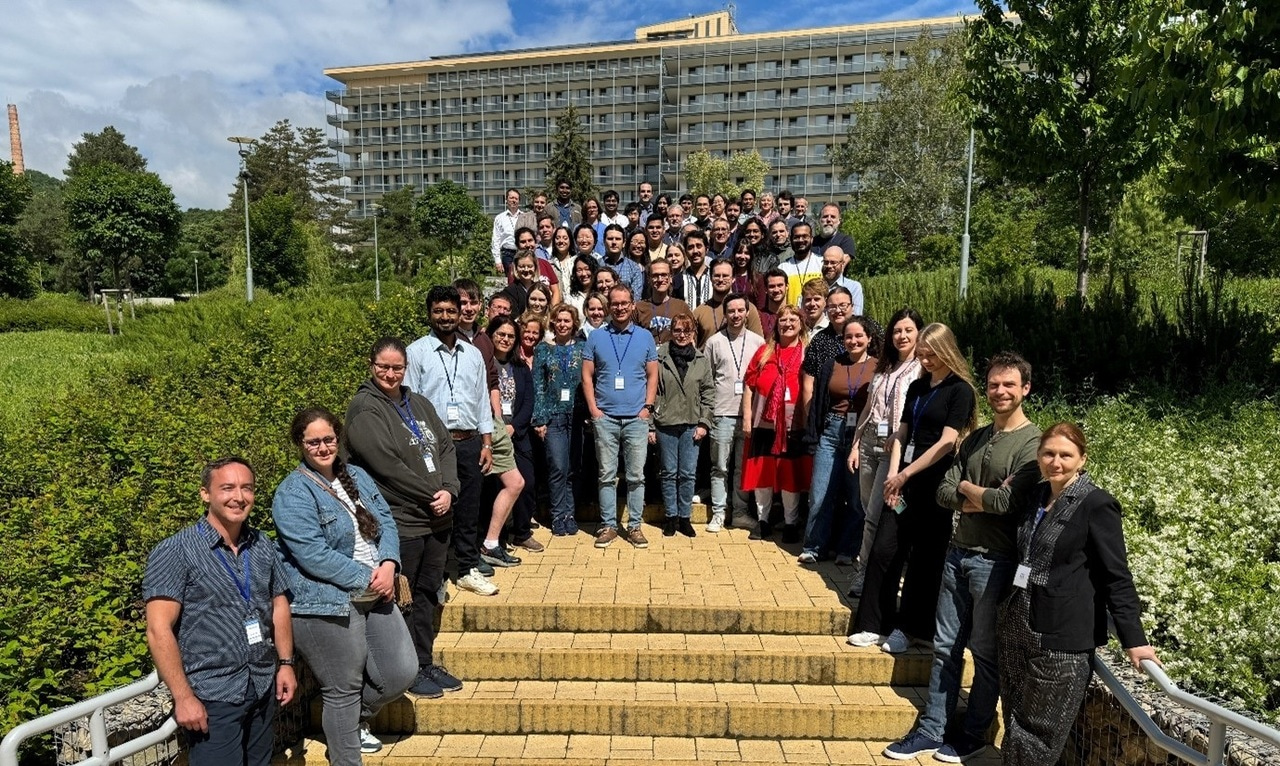
The FEBS Workshop 'Time-resolved spectroscopy meets time-resolved crystallography: the future of dynamic photobiology' took place 6–8 May 2025 in Pécs, Hungary, at the Medical School of the University of Pécs. It brought together experts, early career researchers, and students from the fields of time-resolved spectroscopy, time-resolved X-ray techniques and theoretical studies to discuss their recent work and the synergy between the experimental techniques in order to advance our understanding of light-induced biological dynamics and foster new collaborations between the complementary fields.
This event was the second in-person edition of the workshop, which was first organised as a virtual meeting in April 2023. The workshop was organised by an international, multi-disciplinary committee including Sofia M. Kapetanaki (MAX IV Laboratory, Sweden), András Lukács (University of Pécs, Hungary), Giorgio Schirò (Institut de Biologie Structurale, France) and Sofia Jaho (Diamond Light Source, UK), and was mainly funded by FEBS via the FEBS Advanced Courses programme. Additional funding was provided by the University of Pécs, the European XFEL, Boehringer Ingelheim Stiftung, The Company of Biologists and sponsorship from Dectris and MiTeGen.
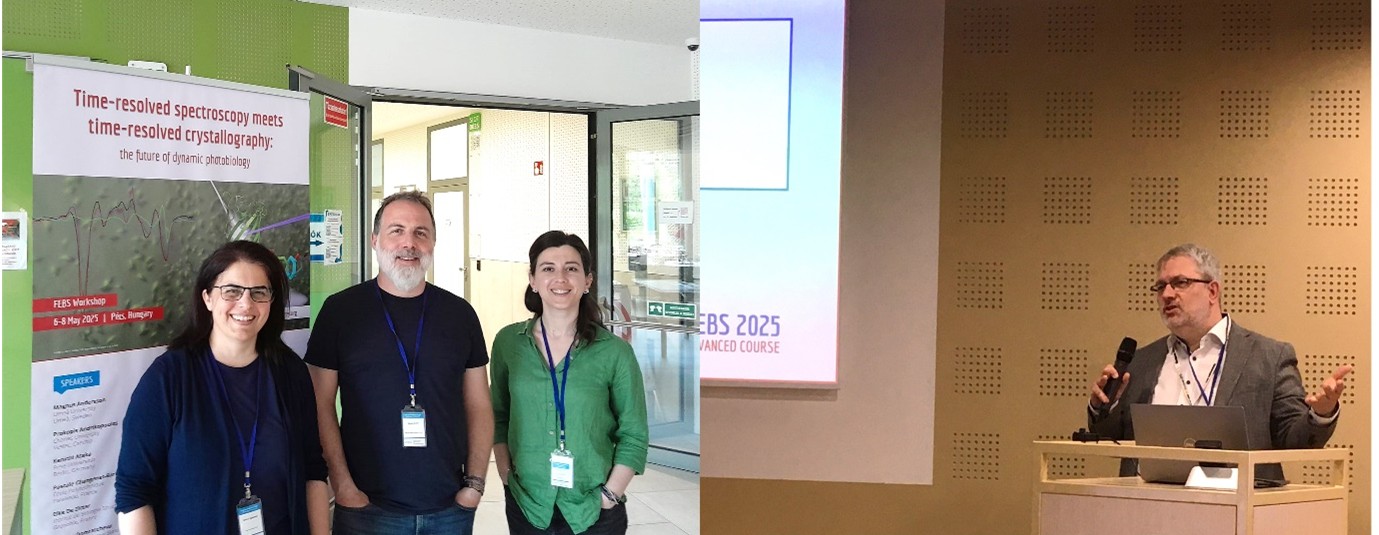
Workshop and main programme
The scientific programme of the workshop was spread over 3 full days, including plenary and thematic sessions with talks from 19 invited speakers and the workshop’s participants, while there were also 2 dedicated poster sessions, with posters being displayed throughout the duration of the workshop for extensive discussion and scientific networking. In total, 30-minute oral presentations were given by 19 invited speakers, 20-minute talks were given by 3 contributing speakers, and 15-minute slots were offered to 17 early career researchers.
Recent advances in the fields of time-resolved spectroscopy and time-resolved crystallography were discussed, including a wide range of photoactivated biological systems and ongoing research on studying enzymatic mechanisms, as well as developing methods in the related fields to enable advanced and cutting-edge research and to couple these two complementary techniques alongside with theoretical studies. In particular, FT-IR spectroscopy and Surface-Enhanced Infrared Absorption Spectroscopy (SEIRAS), as well as Femtosecond Stimulated Raman Spectroscopy (FSRS) and 2D Electronic Spectroscopy (2DES), were presented. Time-resolved optical in crystallo spectroscopy, time-resolved cryoEM and complementary theoretical methods (quantum chemistry, DFT calculations and MD simulations), highlights of the recent structural discoveries by X-ray electron lasers and the compact X-ray Free Electron Laser at Arizona State University were presented, as well as the table-top electron sources for X-ray crystallography, sample delivery systems for serial X-ray crystallography and case studies using X-ray spectroscopic techniques and different triggering mechanisms to initiate reactions (pH jump, T jump and caged compounds).
Finally, this FEBS Workshop also highlighted the recent developments in a selected number of research facilities (synchrotrons and X-ray Free Electron Lasers) that enable game-changing advances in biological dynamic processes.
The workshop opened the first day with a talk from Prof. Milagros Medina, Member-in-Charge from FEBS, who delivered a welcoming message from FEBS and its activities and news. Moreover, Dr. Julija Hmeljak, Managing Editor of The FEBS Journal, delivered an insightful talk on How to Choose a Journal when publishing with FEBS Press journals.
In order to educate and inspire younger researchers, two tutorial talks were delivered during the second day of the workshop covering both the fields of time-resolved spectroscopy and crystallography, where Prof. Cristiano Viappiani (Università di Parma, Italy) talked about the rise and fall of excited states and Dr. Elke De Zitter (Institut de Biologie Structurale, France) showed worked examples with CrystFEL and Xtrapol8, two softwares used by the macromolecular crystallography community. Both tutorials and some of the talks are available online at Timeresolved - YouTube, thanks to funding from the Company of Biologists.
Finally, the workshop included dedicated slots for discussions in the Meet the Expert sessions and in the Round Table Discussions session, which were well-received by all participants as a way of fostering open scientific discussions and exchange in a non-typical format such as a lecture or talk.
Travel grants
The attendance of several early-career researchers was supported by travel grants. There were 4 FEBS Youth Travel Fund (YTF) grants, 1 from the International Union of Biochemistry and Molecular Biology (IUBMB), 2 from the French Crystallographic Association (AFC), 1 from the French Society for Photobiology (SFPb), 1 from DECTRIS and 1 from Fonds der Chemischen Industrie (FCI).
Networking and social events
All participants had many opportunities for networking and scientific discussions during the poster sessions, the Meet the Expert sessions and the Round Table Discussions session at the end of the workshop, where a generalized discussion on the present and the future of the field of dynamic photobiology took place.
Social gatherings were also available during the coffee breaks and the gala dinner.
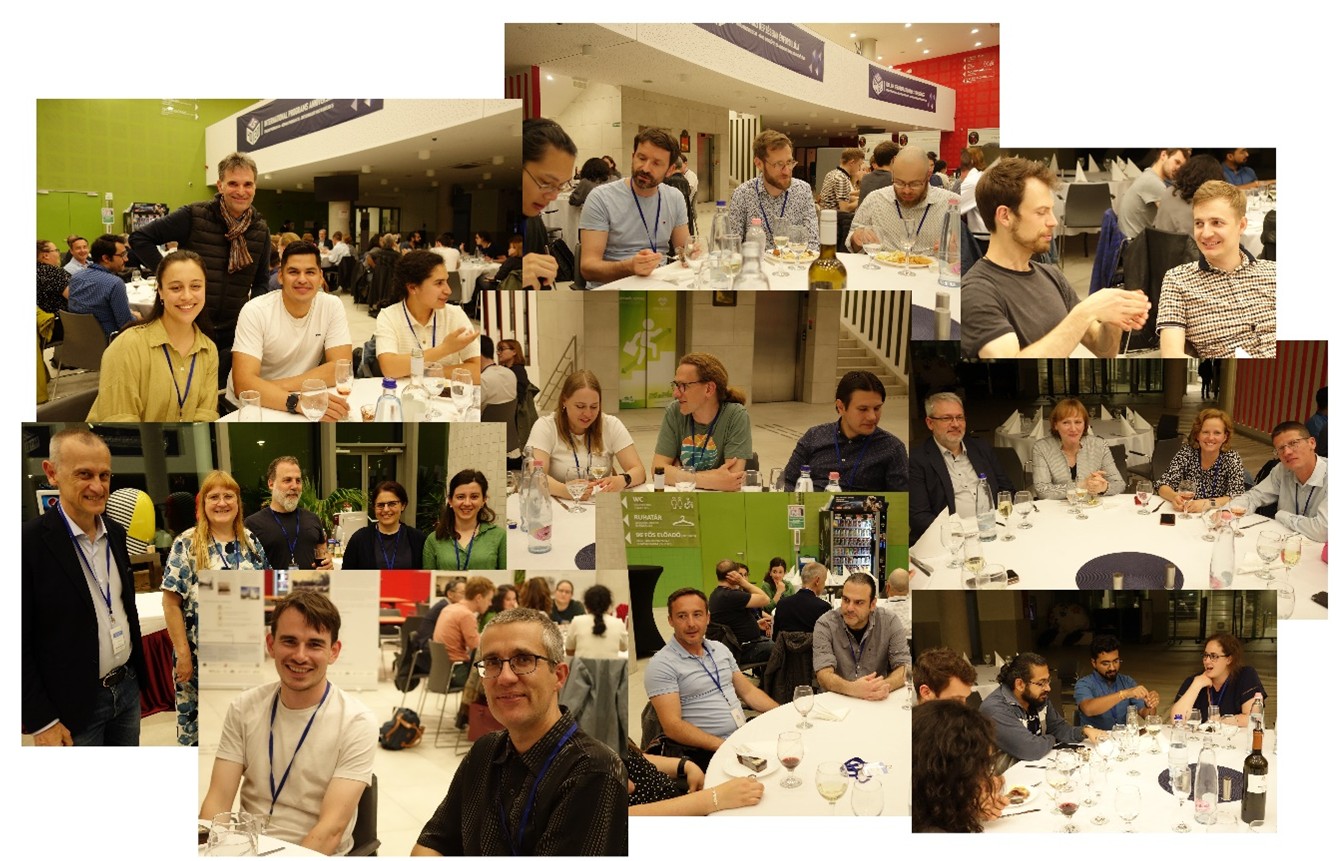
A dedicated Sightseeing slot was scheduled by the organizers during the lunch break of the second day to provide participants with some free time to visit the scenic city of Pécs while networking in more a relaxed atmosphere. Small groups of the participants were gathered and visited together different locations and attractions around the city, an activity that everyone seemed to enjoy!
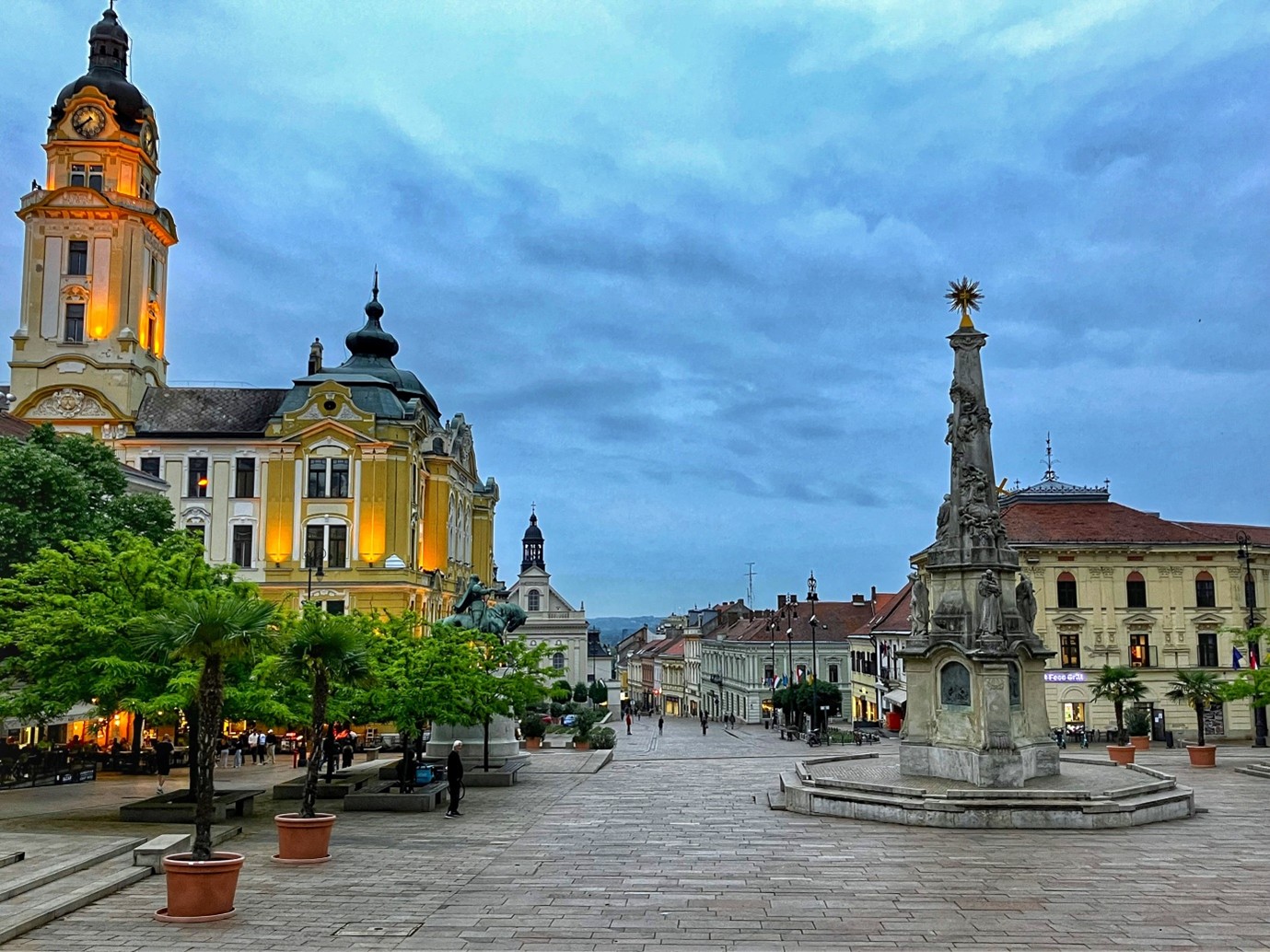
The future of dynamic photobiology
The FEBS workshop Time-resolved spectroscopy meets time-resolved crystallography: the future of dynamic photobiology highlighted the necessity of a regular meeting that can bring together experts and early-career researchers of two different, but at the same time, complementary techniques for discussing the advances in dynamic photobiology. The workshop was met with enthusiasm by the participants and we would like to think that an international scientific community, passionate about dynamic photobiology, has found a hub for fostering open communication, collaborations, and friendships, and look forward already to the next meeting.
All images provided by the course organizers. Top photograph of the participants of the FEBS Workshop Time-resolved spectroscopy meets time-resolved crystallography: the future of dynamic photobiology.
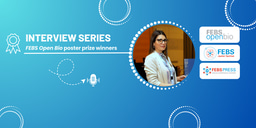




Join the FEBS Network today
Joining the FEBS Network’s molecular life sciences community enables you to access special content on the site, present your profile, 'follow' contributors, 'comment' on and 'like' content, post your own content, and set up a tailored email digest for updates.